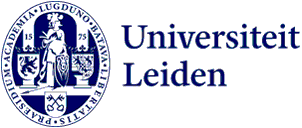
Wim Voermans appointed Distinguished Professor
The Executive Board has appointed Wim Voermans to the position of distinguished professor. This is a unique role that allows professors to take the lead on the key strategic themes within the university. Professor Voermans intends to focus on building long-term institutional trust.
Wim Voermans is a Professor of Constitutional and Administrative Law. He says on this new appointment, effective from 1 September for 0.4 FTE: ‘It’s a huge honour that my university places this amount of trust in me. I’ve been working here for 22 years now and I feel very much connected with Leiden University. Having been here for so long, I really enjoy seeing the enormous wealth of academic disciplines and research in Leiden and how that can benefit collaboration with others.’
As a distinguished professor, Voermans will focus on developing long-term institutional trust. This is a key topical issue that is already more broadly embedded within the university and Leiden Law School and needs further development in the coming years through interdisciplinary collaboration. ‘Leiden University is exceptionally well prepared to conduct research into the various aspects of trust within institutions.’ Trust is essential to the existence of social and political institutions and organisations that together make up the democratic state under the rule of law. He continues: ‘Democracy is only as strong as your belief and trust in it. A good understanding of that interplay helps you know how to work with it.’
Distinguished Professors
Wim Voermans is only the fourth person to be appointed to this position, following the appointments of Ineke Sluiter, Arnold Tukker and Judi Pesman. Distinguished professor (Universiteitshoogleraar) is a special position at Dutch universities that is held by leading professors. Leiden University has its own interpretation of this position: Leiden’s distinguished professors will focus on one or more themes and will help define their remit. They thus help implement the university’s strategic plan. In addition, they have the task of promoting interdisciplinary collaboration.
Interdisciplinary collaboration
In collaboration with researchers from various disciplines, Professor Voermans aims to study how trust works, how to gain trust, when trust wanes and how trust evolves within institutions over the years. He adds: ‘We also need to include these insights and perspectives in political and social debate. That’s where I envisage a role for myself.’
Another role that he sees for himself as a distinguished professor is in uniting various disciplines. ‘By coming together and involving each other in your own research, you come into contact with entirely different insights and perspectives. In my experience, interdisciplinary collaboration can be extremely productive. It’s hugely enriching.’
Constitutional law
Professor Voermans’ current research and teaching focuses on the theory and practice of international constitutional law, comparative constitutional law and European law. In his research, he pays particular attention to the functioning and social, economic and political effects of constitutional law based on his hypothesis that constitutions serve as literature. He is investigating constitutional legitimacy issues, overall compliance and how constitutional systems perform.
His work also addresses the question of whether and how transparency and openness help promote trust in the Dutch government. He coordinates and contributes to the faculty research programme ‘The Legitimacy and Effectiveness of Law & Governance in a World of Multilevel Jurisdictions’. As part of this research, Professor Voermans primarily examines governance issues, as current socio-economic problems are increasingly being solved by applying legislation and rules. The European Union, in particular, is attempting to control the markets in this way. How far does the power of law extend in this area? And how does that affect public support for the rules? With this new remit, Professor Voermans also intends – in collaboration with the relevant researchers – to contribute to the further development of trust in institutions as one of the faculty research focus areas, as part of the follow-up to the national Law Sector Plan.
Photo: ANP
